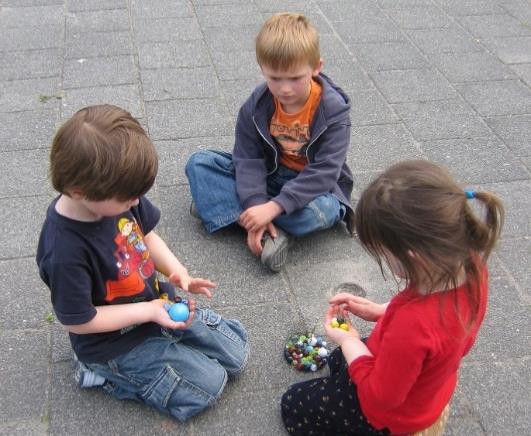108 Peer Relationships
Most children want to be liked and accepted by their friends. Some popular children are nice and have good social skills. These popular-prosocial children tend to do well in school and are cooperative and friendly. Popular-antisocial children may gain popularity by acting tough or spreading rumors about others (Cillessen & Mayeux, 2004). Rejected children are sometimes excluded because they are shy and withdrawn. The withdrawn-rejected children are easy targets for bullies because they are unlikely to retaliate when belittled (Boulton, 1999). Other rejected children are ostracized because they are aggressive, loud, and confrontational. The aggressive-rejected children may be acting out of a feeling of insecurity. Unfortunately, their fear of rejection only leads to behavior that brings further rejection from other children. Children who are not accepted are more likely to experience conflict, lack confidence, and have trouble adjusting.

Peer Relationships are studied using sociometric assessment (which measures attraction between members of a group). Children are asked to mention the three children they like to play with the most, and those they do not like to play with. The number of times a child is nominated for each of the two categories (like and do not like) is tabulated. Based on those tabulations, children are categorized into the following:
|
Category |
Description |
|
Popular Children |
Receive many votes in the “like” category, and very few in the “do not like” category. |
|
Rejected children |
Receive more unfavorable votes, and few favorable ones. |
|
Controversial children |
Mentioned frequently in each category, with several children liking them and several children placing them in the do not like category. |
|
Neglected children |
Rarely mentioned in either category. |
|
Average children |
Have a few positive votes with very few negative ones. |
|
Popular- prosocial children |
Are nice and have good social skills; tend to do well in school and are cooperative and friendly. |
|
Popular- antisocial children |
May gain popularity by acting tough or spreading rumors about others. |
|
Rejected- withdrawn children |
Are shy and withdrawn and are easy targets for bullies because they are unlikely to retaliate when belittled. |
|
Rejected- aggressive children |
Are ostracized because they are aggressive, loud, and confrontational. They may be acting out of a feeling of insecurity. |
Unfortunately for rejected children, their fear of rejection only leads to behavior that brings further rejection from other children. Children who are not accepted are more likely to experience conflict, lack confidence, and have trouble adjusting. (Klima & Repetti, 2008; Schwartz, Lansford, Dodge, Pettit, & Bates, 2014).[2]
In the video, reviews categories of peer relationships.
- Lifespan Development: A Psychological Perspective by Martha Lally and Suzanne Valentine-French is licensed under CC BY-NC-SA 3.0 ↵
- Lifespan Development: A Psychological Perspective by Martha Lally and Suzanne Valentine-French is licensed under CC BY-NC-SA 3.0 ↵

